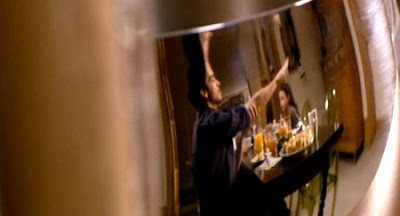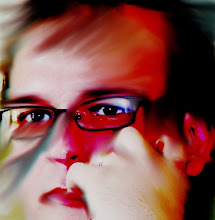To tell the truth, I have a soft spot for French films, for some reason.

I have no idea what it is about that country, but their movies make sense to me.
Truffaut, Leconte, Alain Resnais, Gela Babluani, Alexandre Bustillo, Gaspar Noe, I love 'em all.
French films are beautiful and horrific. They move, inspire and scare the Christ out of me all at the same time.
"Ne te retourne pas" is no exception. It does all of those things at once and it does them very slowly and subtly.
Aside from that, I had seen de Van’s 2002 freak-fest “Dans ma Peau” (In My Skin) and to this day, I’m the only person I have met in real life who liked it.
And who doesn’t want to spend 100 minutes or so watching Sophie Marceau? (Well, as it turns out, the better part of half that time, anyway.)
I vaguely had the idea that it was going to be some kind of thriller.
So imagine my delight and surprise when I found myself completely lost and confused as hell about 12 or 13 minutes into the movie.
The film centers around Jeanne, a French trade writer who finally wants to write fiction, specifically autobiographical fiction.
The problem is, she can’t remember anything before she was 8-years-old.
The other problem is that while her work as a professional writer is exceptional, her first attempt at fiction is terrible.
It’s tepid, self-aware, disassociated, overly-descriptive and trite.
Of course this is because memories of childhood are more than just facts told to Jeanne by her mother. The novel is cold because Jeanne never felt, touched or tasted a childhood. Poor Jeanne.
Before long, Jeanne’s mind starts playing tricks on her. Or is her family just messing with her?
Little things start to seem out of place, like the kitchen table, and s
he catches her husband and children ges
turing ominously to each other, exchanging conspiratorial hand signals.
Of course, at this point, we, the audience have no idea what's going on, but that’s okay
because neither do any of the characte
rs. Is Jeanne going crazy? Is it a brain tumor or a legion?
Is it Satan?
Actually, there’s nothing that suggests anything supernatural, but whenever there are endless, baseless theories as to what’s happening in a movie, I always like to throw Satan into the mix.
Before long, Jeanne’s loving husband is actually changing into another man and then Jeanne finds herself morphing.
The scene where we first see her with half of her own face and half of a new face surprised me by how effectively creepy it was.
It’s impressive how we’re about half an hour into the film and we have no reason to be frightened, but for some reason, I’m finding myself with a severe case of the willies.
Again, we still have absolutely no idea what is going on. And that's a very good thing because none of the characters do, either.
The rest of the film plays out with Jeanne’s mind swapping out her perception of realities to the point where her husband, mother, children and herself are different people.
Jeanne goes on a journey to find who her ‘true’ mother, self, husband, and her whole reality actually is.
By the time we get to the 'twist ending' which I won't give away just on the principle of not spoiling films, the plot is no longer the point. This isn't a film where the story matters.The chain of events is incidental. What’s important is Jeanne’s broken mind.
Toward the beginning of the film, there’s a scene that shows her mother playing poker in an apartment with a handful of friends around a small table.
Later, when Jeanne visits her mother, she’s playing poker in an enormous, elegant penthouse, filled with affluent gamers, security guards and high stakes.
When Jeanne’s reality is altered, it’s disturbing, especially when the change is subtle.
For me, the most jolting moments were toward the building when she would catch her husband and children exchanging those subtle hand signals out of the corner of her eye or in a reflection or on a home video.
Of course, they had no idea what she was talking about and watching the film, I believed them.
They were truly her loving family and meant her no harm. I was just as lost as Jeanne was and that was what made the film so psychologically gruesome.
Because Christ, do any of us really have any kind of grasp on anything?
Watch this movie. Buy this movie. It’s a masterpiece.
Along with John Hillcoat’s adaptation of “The Road,” this is the second film to make me realize I put out my top 10 of 2009 too soon.
I need to wait like a year before doing those.
And, in case any of you care, right now, I'm listening to:





















